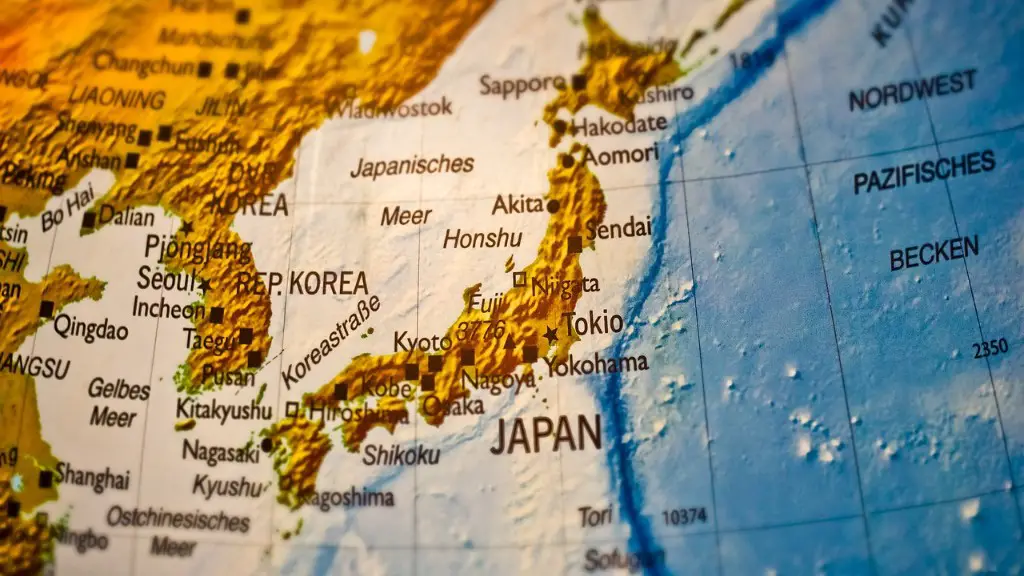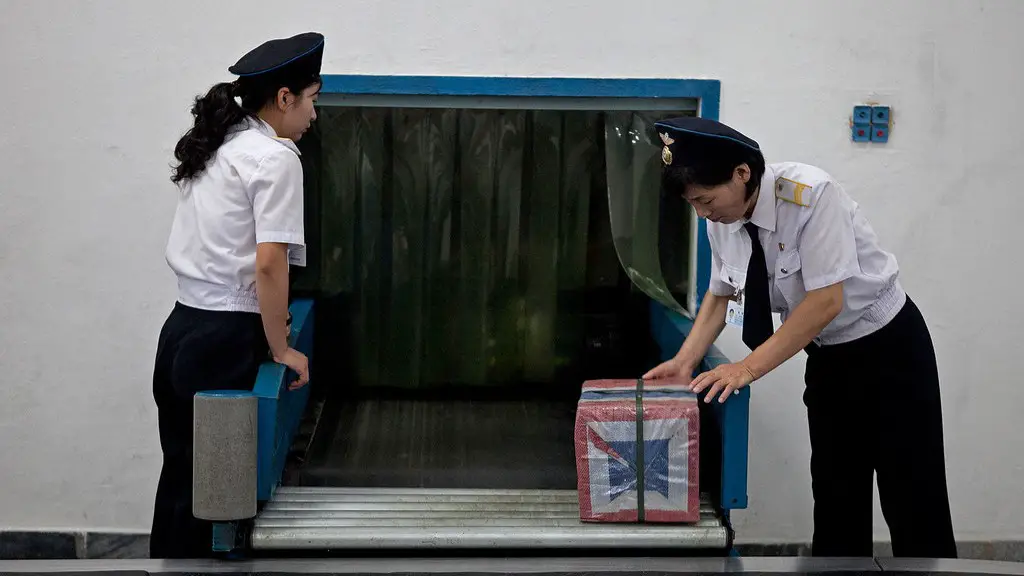Engagement With The United States
North Korea has promised to denuclearize many times over the years, but it is their engagement with the United States that has driven these pledges. During the presidency of George W. Bush, North Korea proposed the freezing of its nuclear activities in exchange for the easing of international economic sanctions and the provision of energy aid. The United States was open to these negotiations, which created the preliminary agreement known as the Six-Party Talks. This agreement called for the denuclearization of the Korean Peninsula.
Although the Six-Party Talks eventually failed due to North Korea’s refusal to agree to inspections, the talks opened up dialogue and set a path for future negotiations. During the Obama administration, North Korea declared they would “denuclearize the Korean Peninsula, abandon their nuclear weapons and nuclear programs in a complete, verifiable, and irreversible manner”. However, when the talks turned to how this would be accomplished, North Korea pulled out of the negotiations and continued to develop their nuclear capabilities.
Lack of Trust
It has been difficult to establish and maintain trust between North Korea and the United States. North Korea may have promised to denuclearize many times and the United States may have agreed to the framework of the Six-Party Talks, but both parties have made decisions in the past that caused a lack of trust. For example, North Korea conducted their first nuclear test in 2006, which violated international treaties and destroyed the trust that the United States had invested in the negotiations.
The United States is also unwilling to trust Pyongyang, as the country has promised to denuclearize on various occasions, but it has never been able to deliver on these promises. The United States has also been unwilling to enter into negotiations without preconditions, as Pyongyang has a history of using the talks to gain economic benefits and diplomatic recognition rather than working towards denuclearization. This lack of trust has made it difficult for the two countries to come to an agreement on the denuclearization of the Korean Peninsula.
Kim Jong-un’s Journey To Denuclearization
When Kim Jong-un took office in 2011, many speculated that he would take a softer approach towards denuclearization. Kim Jong-un appears to have made denuclearization a priority and has taken concrete steps to advance the process. These steps include the closure of the Punggye-ri nuclear testing site, the shuttering of the Yongbyon plutonium and uranium enrichment plants, and the decision to freeze long-range missile and nuclear tests.
Kim Jong-un has also held summit meetings with the leaders of South Korea and the United States, and in 2018, President Donald Trump and Kim Jong-un met to discuss denuclearization. During this meeting, Kim promised to work towards denuclearization, and although there have been no tangible steps taken since then, the meeting created a path for engagement between the two countries.
Inter-Korean Relations
The relationship between North and South Korea has been tense since the Korean War, however, both countries have taken steps to improve relations and create a pathway to denuclearization. In 2018, North and South Korea held their first summit in many years, during which they promised to take steps towards denuclearization, increase military and economic cooperation, and move towards a formally-signed peace treaty.
Following this summit, North and South Korea have taken steps to reduce tensions and improve relations. North Korea has returned the remains of many South Korean soldiers who had been killed during the Korean War. North and South Korea have also established joint projects, such as the inter-Korean railway, which was opened in 2018 and has helped to promote economic and cultural exchange between the two countries.
China’s Role In Denuclearization
China has been a key player in the negotiations regarding the denuclearization of the Korean Peninsula. As a close ally of North Korea, China has provided economic and diplomatic support for Pyongyang and has served as an intermediary between the two countries.
China was a member of the Six-Party Talks and has been involved in the 2018 U.S.-North Korea summit. It has also voiced its approval for denuclearization, albeit cautiously. Recently, China joined the United States in pressuring North Korea to take further steps towards denuclearization.
United Nations Sanctoins
The United Nations has taken a hard-line stance towards North Korea in an attempt to pressure them to denuclearize. The U.N. Security Council has imposed a number of sanctions on North Korea, including economic and energy-related sanctions. These economic sanctions have been effective in slowing down North Korea’s economy and stimulating political dialogue.
However, some argue that the U.N. sanctions have been too harsh and have negatively impacted the people of North Korea. Critics argue that the sanctions are not an effective way to bring about denuclearization, as they do not target the nuclear program itself.
Historical Precedent
It is important to note that North Korea has a long history of reneging on its promises to denuclearize. In the past, North Korea has entered into negotiations only to back out when the talks become serious. This has caused many to be wary of North Korea’s promises, as they have been known to make deals only to break them.
As such, it is crucial to view North Korea’s pledges to denuclearize with caution and to analyze their past behavior in order to ensure that the same mistakes are not repeated. Furthermore, it is important to consider all of the factors that contribute to denuclearization, such as economic incentives, improved inter-Korean relations, and U.S.-North Korea relations. Only then can we begin to assess the likelihood of North Korea actually fulfilling their promises and achieving true denuclearization.
Military Action
The United States and its allies have expressed a willingness to consider using military action if North Korea does not denuclearize. The Trump administration is adamant that North Korea should denuclearize, and it is willing to use diplomatic and economic pressure as well as possible military action to achieve this goal.
Critics of this strategy argue that military action against North Korea would only worsen the situation and could lead to a devastating regional conflict. Others argue that North Korea’s nuclear capability is too great and too unpredictable to be contained by diplomatic measures or economic sanctions.
Moving Forward
North Korea has promised to denuclearize many times in the past and, despite numerous efforts, has yet to follow through on these promises. Moving forward, it is essential to get North Korea to focus more on denuclearization plans than economic gains. To that end, it is important for both the United States and North Korea to recognize the importance of trust and to build relationships that are based on mutual understanding and respect.
It is also important for the international community to recognize that denuclearization is a complex issue and that a multi-faceted approach is needed. This approach should include economic incentives, improved inter-Korean relations, and diplomatic pressure from the United Nations and its allies. Only then will North Korea take the steps necessary to denuclearize the Korean Peninsula.


